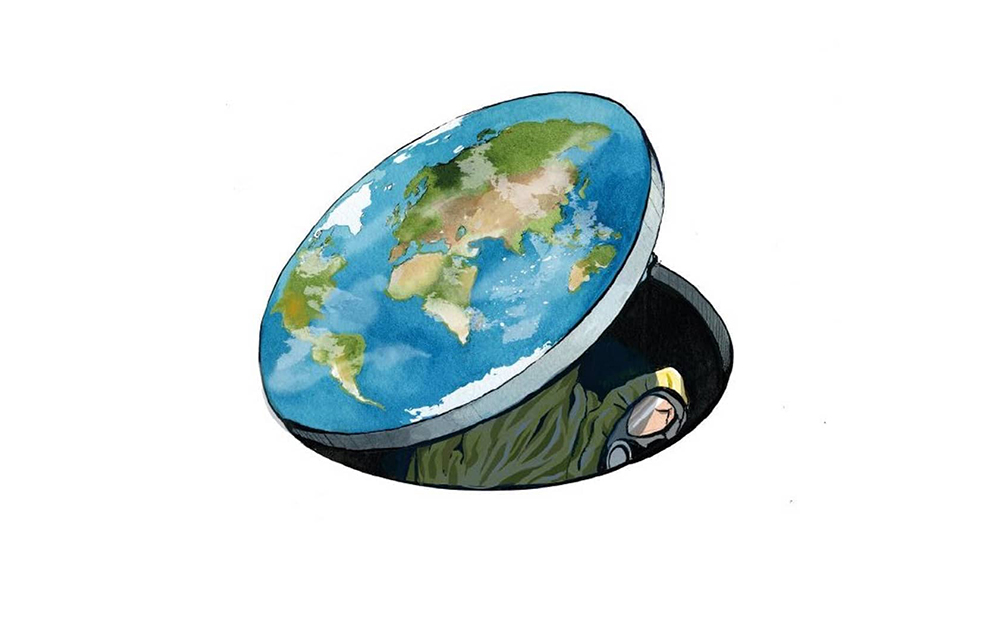Did the BBC breach its own impartiality rules by keeping critics of the government’s pandemic response off the air during the first lockdown? I first made that accusation in 2020 in a witness statement I submitted to the High Court in an effort to challenge Ofcom’s ‘coronavirus guidance’, which I argued was a factor in the BBC’s one-sided coverage. The attempt failed, with Ofcom able to convince the court that its guidance only cautioned against broadcasting ‘harmful’ content.
Part of my evidence, which I remember being slightly embarrassed to submit, was that my invitations to appear on the BBC had dwindled to almost nothing since I’d become a critic of lockdown policy. I’ve spoken to other lockdown sceptics and they say the same thing, but it’s impossible to prove we were kept off the airwaves because of our heretical views. In my case, it might just be because the Beeb had decided I’d become a bit of a bore.
When dissenting experts did slip through the net, they weren’t always given a fair hearing
But a recent investigation by the Telegraph into the Counter Disinformation Unit (CDU), a secret ‘cell’ in Whitehall that worked with the government during the pandemic to monitor ‘misinformation’ and ‘disinformation’, suggests that the BBC’s editorial independence may have been compromised. The head of the CDU, Sarah Connolly, says that one of its functions was ‘passing information’ to social media companies to ‘encourage… the swift takedown’ of posts it regarded as suspect. That’s worrying because we know that the CDU ignored an instruction from the Cabinet Office not to include ‘opinions’ in its definition of mis- and disinformation. Among the content flagged by the censors were criticisms of the government’s decision to close schools by Molly Kingsley, the co-founder of a children’s campaign group.
Did the CDU’s attempts to suppress dissent extend to the BBC? Connolly also chaired the Counter Disinformation Policy Forum, a group that included academics, lobbyists, tech companies and – crucially – a representative from the BBC. This was Jessica Cecil, founder of the Trusted News Initiative, a consortium that includes Facebook, Google, Microsoft and Twitter, and which was recently accused in a Texas court of getting those companies to remove dissident views about lockdowns and vaccines.
The BBC has played down the significance of Cecil’s attendance, claiming she was there in an ‘observer-only capacity’. But in the context of other things we know about the Beeb’s lockdown coverage, it looks a bit suspicious. ‘People were suggesting eminently qualified experts as alternative voices, but in my experience not one of them was put on air,’ an ex-BBC employee told the Telegraph. Other BBC journalists describe a ‘climate of fear’ in which anyone questioning the wisdom of the lockdown policy was ‘openly mocked’.
When dissenting experts did slip through the net, they weren’t always given a fair hearing. In October 2020, Sunetra Gupta, one of the signatories of the anti-lockdown Great Barrington Declaration, was invited on to BBC News to talk about new lockdown measures. Yet just before she was due to go on air a producer told her not to mention the declaration. Where did that instruction come from?
In September 2020, Susan Michie, then a member of Sage and a zealous supporter of Covid restrictions, complained on Twitter that she’d been booked on to the Today programme to discuss the Great Barrington Declaration with Professor Gupta on the understanding that the scientists behind it would be portrayed as cranks. But to her irritation, Gupta was, for once, allowed to set out her stall. ‘I was assured that this would not be held as an even-handed debate,’ wrote Michie. Who gave her that assurance? And why were the normal impartiality rules being waived?
David Davis MP, whose social media posts were monitored by the CDU, has called for a parliamentary inquiry into the government’s efforts to suppress dissent during the pandemic under the guise of protecting the public from mis- and disinformation. But wouldn’t it be better if this was dealt with by the official Covid inquiry? During the public consultation on the terms of reference last year, I responded by saying the inquiry should broaden its remit to investigate state interference with freedom of expression. I was told this would be covered under the existing terms, although to judge from the people who have been invited to testify that seems unlikely. No sceptical journalists have been called up, but 17 members of Independent Sage, a pro-lockdown lobby group, have.







Comments